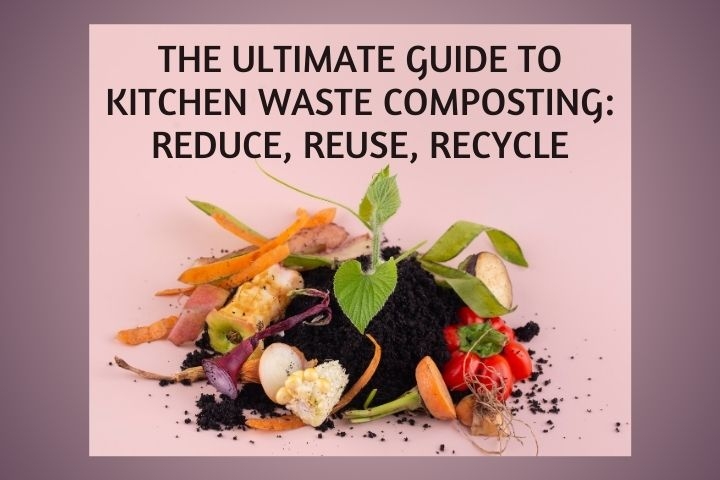The Ultimate Guide to Kitchen Waste Composting: Reduce, Reuse, Recycle

Kitchen Waste Composting: A Sustainable Solution for Eco-Friendly
Living
Welcome to our comprehensive guide on kitchen waste composting – the eco-friendly practice of recycling food scraps into nutrient-rich compost for your garden. In this guide, we will explore everything you need to know to get started with composting at home, from the benefits to the step-by-step process.
Why Kitchen Waste Composting Matters?
1. Environmental Benefits of Composting
Composting kitchen waste significantly reduces the amount of organic matter that ends up in landfills, where it contributes to greenhouse gas emissions. By composting at home, you can help mitigate climate change and reduce your carbon footprint.
2. Nutrient-Rich Soil for Your Garden
Compost is a natural fertilizer that enriches soil with essential nutrients, improves soil structure, and promotes healthy plant growth. By composting your kitchen waste, you can create a sustainable source of nutrient-rich soil for your garden, resulting in healthier plants and higher yields.
Getting Started with Kitchen Waste Composting
1. Choosing the Right Composter
When selecting a composter for kitchen waste, consider factors such as size, style, and materials. Options range from traditional compost bins to tumblers and vermicomposters, each offering unique advantages depending on your space and needs.
2. Setting Up Your Composting System
Follow these steps to set up a successful composting system:
- Select a suitable location for your composter, ideally in a shaded area with good drainage.
- Layer brown (carbon-rich) and green (nitrogen-rich) materials, such as food scraps, yard waste, and shredded paper, create a balanced compost pile.
- Turn the compost regularly to aerate and accelerate the decomposition process.
- Monitor moisture levels and adjust as needed to maintain a damp but not soggy environment.
- Patience is key – composting takes time, but with proper care, you will soon have rich, dark compost ready for use in your garden.
Troubleshooting Common Composting Issues
1. Odor Control
To prevent unpleasant odors, avoid adding meat, dairy, or oily foods to your compost pile. Covering food scraps with a layer of brown and regularly turning the compost will help minimize odor.
2. Pest Management
To deter pests such as flies and rodents, avoid adding cooked food or large quantities of fruit to your compost pile. Keep the compost covered and add a layer of soil or finished compost to discourage pests from digging.
Harvesting and Using Your Compost
1. Knowing When Your Compost is Ready
Compost is ready to use when it is dark, crumbly, and has an earthy smell. Depending on the composting method and conditions, this process typically takes several months to a year.
2. Benefits of Using Compost in Your Garden
Apply compost to your garden beds, containers, and lawns to improve soil fertility, water retention, and plant health. Compost can also help suppress weeds and reduce the need for chemical fertilizers, making it an eco-friendly choice for gardeners.
Conclusion
By embracing kitchen waste composting, you can take a proactive step towards reducing food waste, nourishing your garden, and contributing to a more sustainable future. Follow our guide to get started on your composting journey and join the movement towards a greener, healthier planet.
- Industry
- Art
- Causes
- Crafts
- Dance
- Drinks
- Film
- Fitness
- Food
- Игры
- Gardening
- Health
- Главная
- Literature
- Music
- Networking
- Другое
- Party
- Religion
- Shopping
- Sports
- Theater
- Wellness
- News


